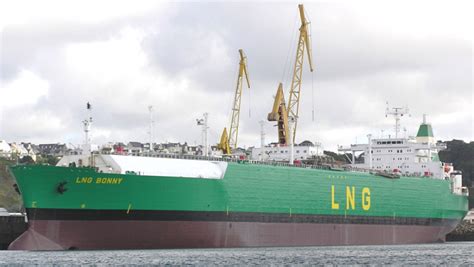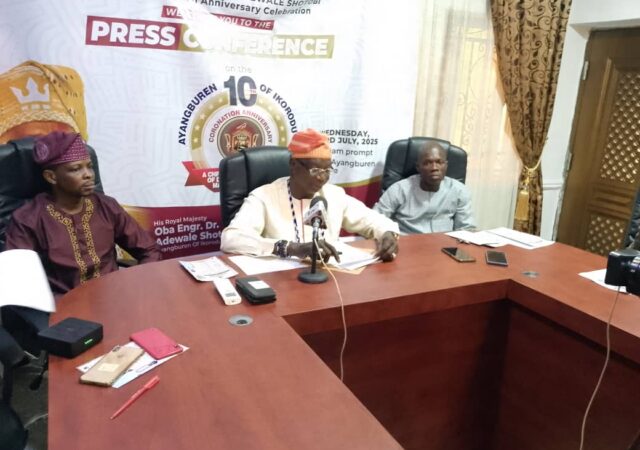Nigeria LNG Limited (NLNG) has called for targeted and innovative policy frameworks to address the unique challenges of the liquefied natural gas (LNG) shipping industry as the world pushes towards a net-zero future.
Speaking during a panel session on LNG Shipbuilding and Transportation at the ongoing 29th World Gas Conference (WGC2025) in Beijing, NLNG’s Deputy Managing Director, Olakunle Osobu—represented by Tolu Longe, Manager, Commercial Contract Management—highlighted the need for regulatory measures that reflect the specific dynamics of LNG maritime operations.
According to Osobu, achieving meaningful progress in decarbonisation will require more than generalized climate policies. “Unlike shipping, where the IMO provides global oversight, other sectors face fragmented national regulations. More cohesive policies could accelerate decarbonisation, particularly in emerging areas like onboard carbon capture. Modular capture systems exist, but without regulatory and economic frameworks, they remain commercially unviable,” he stated.
He stressed the importance of developing a policy landscape that supports the full lifecycle of LNG vessels—from design and construction to operation and eventual decommissioning. This, he said, should include incentives for adopting unproven but promising technologies that may hold the key to lower emissions.
The NLNG executive also underscored the financial challenges slowing down the pace of innovation in the industry. “Financing remains a major hurdle. The financial sector has been slow to align with decarbonisation goals, often prioritising traditional credit metrics over climate impact. This disparity is especially pronounced in regions like Africa, where access to subsidies or low-cost financing is limited,” Osobu said.
He added, “Partnerships with institutions like Afrexim Bank and the IFC can help bridge the gap, but broader industry support is needed.”
Osobu argued that while technology and innovation present opportunities to transform the LNG shipping industry, systemic barriers continue to constrain implementation. “The shipping industry is undergoing a pivotal transformation driven by decarbonisation and the shift toward greener fuels. Fleets must adapt—whether through dual-fuel systems, cleaner fuels like LNG, or emerging alternatives such as ammonia and hydrogen,” he said.
“Yet this transition presents a dilemma for shipowners. Retrofitting vessels or investing in new ones requires significant capital, but current regulations do not translate into premium pricing for cleaner shipping. Consumers remain unwilling to pay more, forcing shipowners to absorb the costs. Meanwhile, financiers have been slow to respond to these market shifts. As a result, lower charter rates may persist for years,” he noted.
In reference to the International Maritime Organization’s (IMO) net-zero mandate, Osobu said that the industry must reduce greenhouse gas (GHG) emissions intensity by 2% by 2028. “Meeting this target through dry-dock retrofits alone would be prohibitively expensive and time-consuming. Scalable solutions that can be implemented during operations are critical,” he advised.
Osobu highlighted the role of digital technologies in achieving emissions reductions, pointing to artificial intelligence (AI) and data analytics as essential tools. “Smart systems can optimize fuel consumption by adjusting engine performance, vessel speed, and routing based on real-time factors like weather and congestion. This enables just-in-time arrivals, minimizing idle time at ports,” he explained.
He also noted that AI-driven systems could enhance maritime safety, especially as vessel sizes increase. “AI can enhance safety through advanced navigation systems, reducing collision risks—a growing concern in today’s shipping environment,” he added.
This year’s World Gas Conference, themed “Energising a Sustainable Future,” gathered global energy leaders and stakeholders from more than 90% of the world’s gas industry. The event continues to serve as a key platform for advancing clean energy solutions and shaping the trajectory of decarbonised global fuel supply chains.








Excellent weblog right here! Also your web site a lot up very fast! What host are you using? Can I am getting your affiliate hyperlink on your host? I wish my web site loaded up as fast as yours lol
I think one of your commercials triggered my web browser to resize, you may well want to put that on your blacklist.
Today, I went to the beachfront with my kids. I found a sea shell and gave it to my 4 year old daughter and said “You can hear the ocean if you put this to your ear.” She placed the shell to her ear and screamed. There was a hermit crab inside and it pinched her ear. She never wants to go back! LoL I know this is entirely off topic but I had to tell someone!
I truly appreciate this post. I?ve been looking everywhere for this! Thank goodness I found it on Bing. You’ve made my day! Thx again
What?s Happening i am new to this, I stumbled upon this I’ve found It positively useful and it has aided me out loads. I hope to contribute & aid other users like its helped me. Good job.
I have learn a few excellent stuff here. Definitely price bookmarking for revisiting. I wonder how a lot effort you put to make any such great informative web site.
Greetings! Very helpful advice on this article! It is the little changes that make the biggest changes. Thanks a lot for sharing!